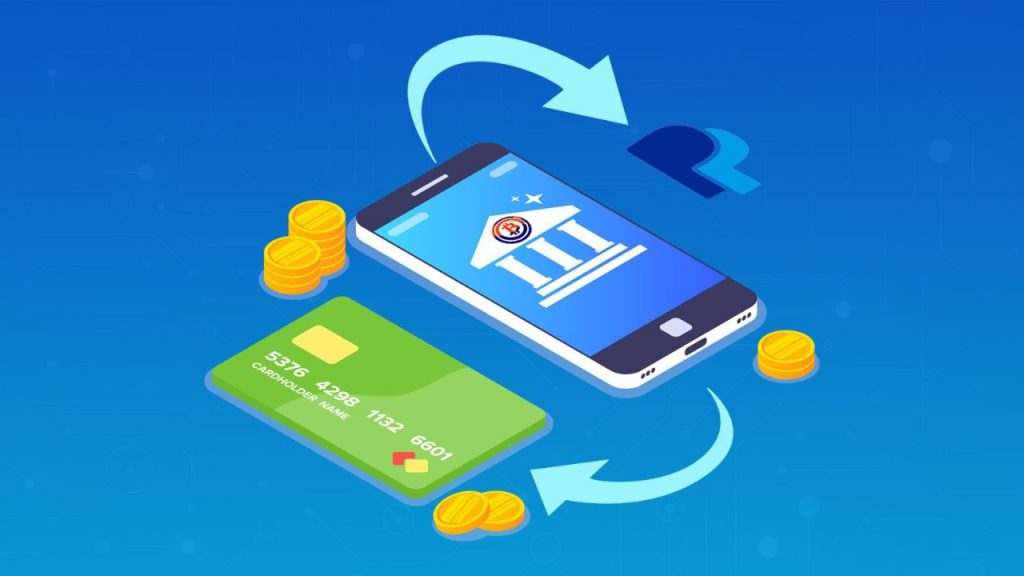Bitcoin of America offers a number of convenient ways to transfer your bitcoin or litecoin to commonly used USD payment gateways like prepaid debit cards or a PayPal account. Read the guides below to find the method that’s best for you. Most commonly, bank transfers are used to transfer bitcoin, but using popular fiat gateways like PayPal and Prepaid debit cards can make it easy to spend Bitcoin and Litecoin anywhere that accepts USD.
Sell Bitcoin to Prepaid Debit Card
Want to spend your crypto at any location across the globe that accepts debit cards, to make purchases of goods and services?
Simply sell your bitcoin or litecoin using Bitcoin of America’s online exchange, and you will receive a prepaid debit card for the amount sold for use immediately online; you can also obtain a physical card in the mail.
If you aren’t already familiar with how prepaid cards work, they function in pretty much the same way that a pay-as-you-go mobile phone does, when you top up the phone with cash. In other words, with prepaid cards you credit the card with cash in order to use them, and add more cash when the credit on the card is low.
Each time you sell bitcoin the card transaction increases your cash balance, but unlike a normal debit card, a prepaid card is not connected to a bank account. Another benefit of a card which only holds the money you have, because it’s not tied to your bank, is that if you fall victim to a scam, you only lose the money on your prepaid card.
In summary, the benefit of prepaid cards is that it’s a great option if you are looking for a quick, easy, and straightforward way of selling your bitcoin or litecoin without the hassle of using your bank account to wire money.
The minimum amount you can receive following a sale on Bitcoin of America using your prepaid card is $25.00 and a maximum of $1999.00.
PayPal Account
Another method is that you can receive the proceeds of selling your bitcoin or litecoin to your PayPal account on the Bitcoin of America exchange. PayPal is one of the most popular and trusted online payment methods, an accessible and secure digital e-wallet, a safe way to withdraw funds after selling bitcoin or litecoin.
If you haven’t tried it before, PayPal also comes with a one-touch service enabling you to checkout without having to re-enter your login details, which is also available on the mobile app.
Just as a prepaid card has its benefits for limiting the impact of scammers, so PayPal is particularly well-suited for crypto investment purposes, designed with user protection in mind, monitoring transactions 24/7 to eliminate identity theft and phishing attacks.
To sign up to PayPal use your internet browser to go to PayPal’s website and click Sign Up, then decide whether you want a personal or business account. Follow the instructions to complete the account set up. To make use of PayPal’s ability to send and receive money, you’ll then need to connect your bank account to your new account.
There is also the option to connect your account to a debit or credit card. If you see a “confirm credit card” link in the card details section of your PayPal Wallet, you’ll need to confirm your card before you can use it with PayPal. If you don’t see this link, you can begin using your card right away.
Bear in mind that you cannot as an individual use PayPal to sell bitcoin or litecoin, as it runs contrary to the acceptable use policy, which states “You may not use the PayPal service for activities that: Section 3, h) involve currency exchanges or check cashing businesses”.
To read step by step instructions on How to Sell Bitcoin to a prepaid card or PayPal, visit the guide on the Bitcoin of America website.
This is a press release. Readers should do their own due diligence before taking any actions related to the promoted company or any of its affiliates or services. GetIgnite is not responsible, directly or indirectly, for any damage or loss caused or alleged to be caused by or in connection with the use of or reliance on any content, goods or services mentioned in the press release.


